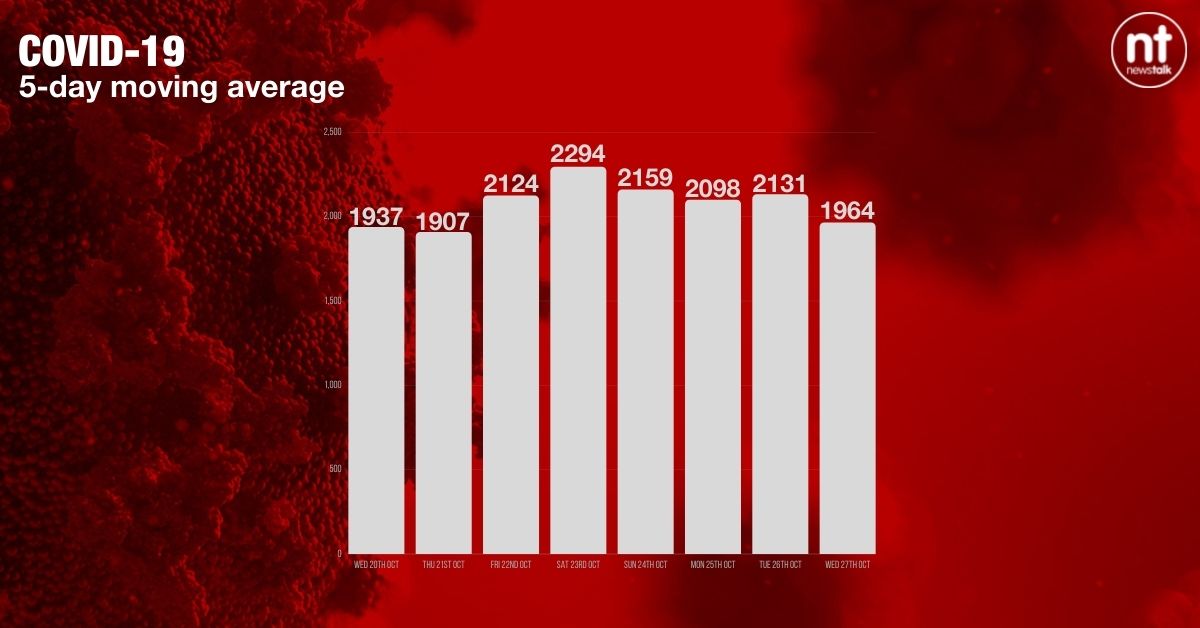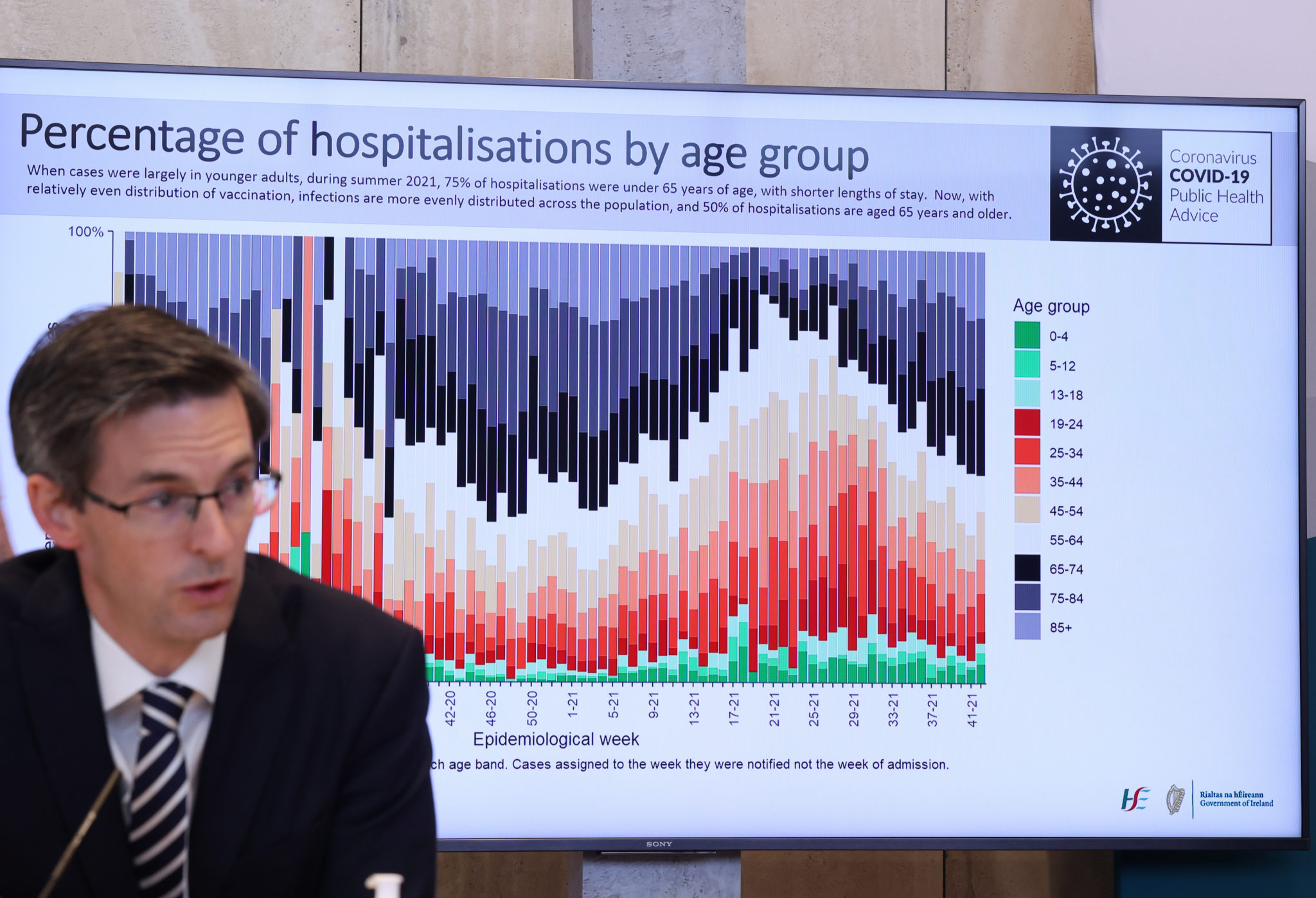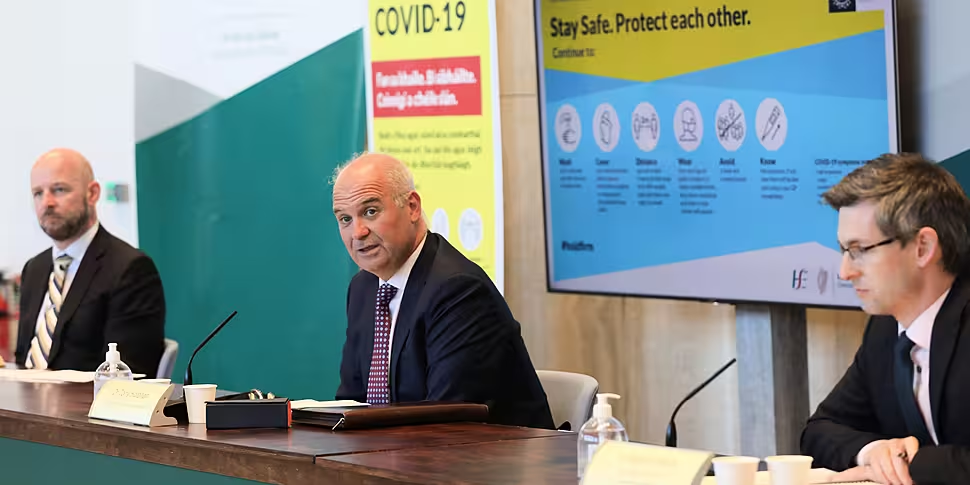There have been 1,631 further confirmed cases of COVID-19 in Ireland.
As of 8.00am Wednesday, there are 503 people in hospital with the virus - 101 of which are in ICU.
An audit of all ICU patients on Tuesday found that 42% of cases in intensive care were fully vaccinated.
While 58% of people in ICU were not fully vaccinated.
There has been a total of 5,436 deaths related to COVID-19 in Ireland.
This includes 67 deaths which have been notified in the past week since last Wednesday.
The five-day moving average of cases has fallen back slightly to 1,964.

Dr Tony Holohan, Chief Medical Officer, says the incidence of the virus is increasing at "a concerning rate".
"The seven-day moving average is now 2,043 - up from 1,138 only three weeks ago.
"Incidence is increasing across all age groups, highest in those aged 5-12 years.
"A combination of higher levels of social contact, a move to socialisation indoors and a collective relaxing of basic public health behaviours combined has led to this surge of infection.
"The importance of individual, institutional and sectoral attention to risk mitigation is crucial at this point.
"I encourage all of us to ensure we are following basic public health advice and to expect the presence of infection prevention control measures in settings we visit".
 Deputy Chief Medical Officer, Dr Ronan Glynn, speaking at a Department of Health COVID-19 briefing in Dublin. Picture by: Sam Boal/Rollingnews.ie
Deputy Chief Medical Officer, Dr Ronan Glynn, speaking at a Department of Health COVID-19 briefing in Dublin. Picture by: Sam Boal/Rollingnews.ieWhile Deputy Chief Medical Officer Dr Ronan Glynn says people need a muti-layered approach to protect themselves.
"There is no one intervention that will protect you and those around you from contracting COVID-19.
"We need a muti-layered approach to this disease, using all the tools we have at our disposal - vaccination, wearing a face mask, well ventilated spaces indoors, hand hygiene and cough etiquette, social distancing when appropriate and isolating at the onset of symptoms.
"These measures combined are the most effective way you can protect yourself and loved ones from COVID-19."
'Particular concern for vulnerable people'
And Professor Breda Smyth, director of Public Health in HSE West, adds: "Incidence is growing across the population. High community incidence threatens all settings.
"A particular concern is for environments with vulnerable people such as nursing homes, hospital and care environments and long-term residential facilities.
"High community transmission poses a substantial risk to this population. A combined effort to reduce incidence is needed to protect the most vulnerable."
However new data from the ESRI suggests people are quite good at recognising that meeting more people, and going to different types of locations, increases the risk of spreading and catching COVID-19.
But it also shows they are less likely to recognise that taking precautionary measures - like wearing masks and keeping socially distanced - decreases the risk.
Such preventive behaviours have been gradually decreasing since the start of the year, the ESRI says.
Christmas restrictions unlikely
While Minister Eamon Ryan has said he does not believe COVID-19 restrictions will be introduced ahead of Christmas.
The Cabinet COVID Sub-Committee met on Tuesday night, amid the continued concerns around the rising case numbers and hospitalisations.
It is feared the peak of the wave could see between 4,000 and 5,000 cases a day, and up to 200 COVID-19 patients in ICU.
Asked if there is any chance restrictions will be re-introduced this Christmas, Minister Ryan earlier said: "I don’t think they will be.
"We discussed that last night - neither Tony Holohan nor anyone else in the room felt that would be the appropriate response.
"As well as personal responsibility, I think sectors have responsibility: every organisation that’s organising an event [should] do it in a way that keeps people distant.
"It's just about being cognisant that the virus is out there, at scale, and for all our interests it's best to put simple measures in place. But I don’t think it will be returning to restrictions."









